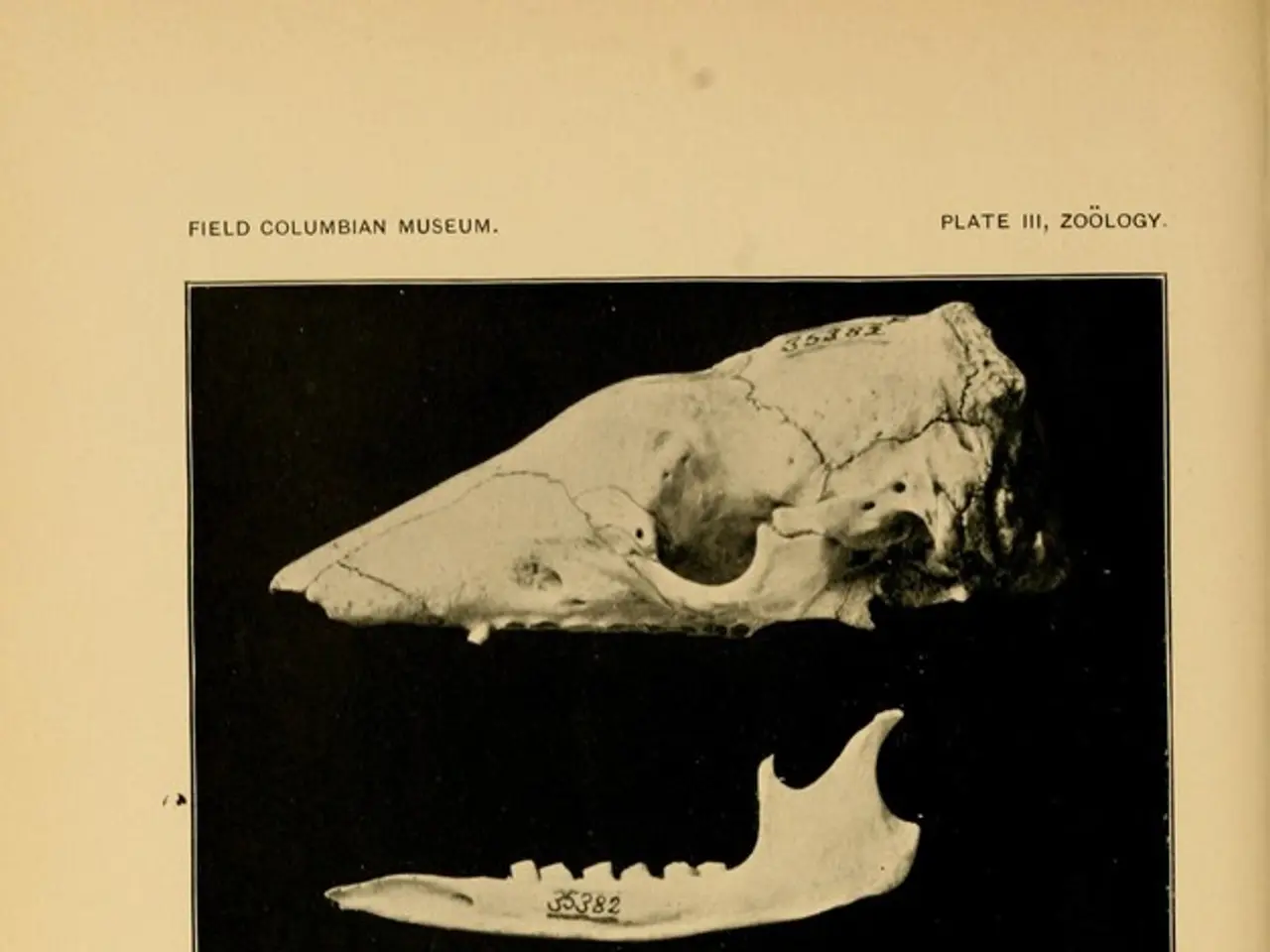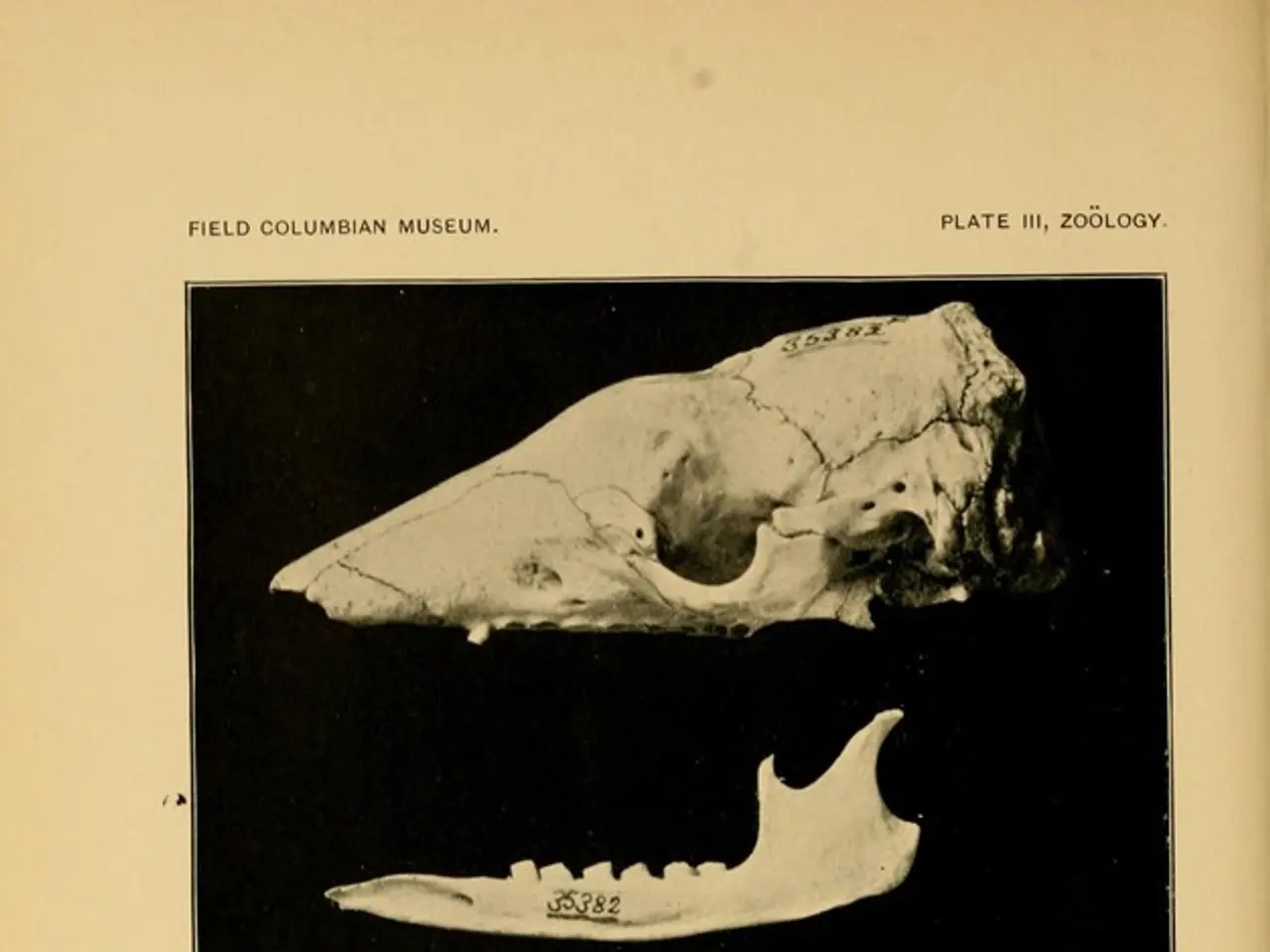Side Effects of Xgeva and Their Management Strategies
Xgeva, a medication used to treat various bone-related conditions, is a monoclonal antibody that targets RANKL, reducing the formation and activity of osteoclasts (bone-resorbing cells) [1][4]. This helps prevent bone loss, fractures, and other skeletal-related events common in patients with multiple myeloma or bone cancer.
Long-Term Effects and Considerations
One of the key benefits of Xgeva is its ability to reduce skeletal-related events (SREs) in patients with multiple myeloma and bone metastases from solid tumors [1][2][3]. Compared to bisphosphonates like zoledronic acid, Xgeva is less toxic to the kidneys, which is advantageous for long-term bone health management in patients with often compromised renal function [1].
However, prolonged treatment with Xgeva may present certain adverse effects. Hypocalcemia (low blood calcium levels) is a known risk, requiring monitoring of calcium and vitamin D levels during therapy [3][4]. Osteonecrosis of the jaw (ONJ), a rare but serious complication, especially following invasive dental procedures, is another concern with long-term use [4]. Musculoskeletal pain or fatigue may also occur in some patients [4][5].
The suppression of osteoclast-mediated bone resorption by denosumab allows normal bone to replace tumor-damaged areas in conditions like giant cell tumor of bone [1][3]. However, long-term suppression may alter bone remodeling balance, necessitating clinical monitoring.
The recent approval of denosumab biosimilars (e.g., Xbryk) confirms similar efficacy and safety profiles, expanding long-term access to this treatment with similar bone health outcomes [4][5].
Side Effects and Precautions
Xgeva is prescribed for treating hypercalcemia in adults due to advanced cancer and giant cell bone tumors in adults and certain adolescents. It also helps prevent bone problems (such as broken bones) in adults with multiple myeloma or bone cancer that has spread from solid tumors.
Good oral hygiene is essential throughout Xgeva treatment. If you need to have a dental procedure during Xgeva treatment, it's crucial to inform your doctor, who may recommend pausing Xgeva use during the procedure and afterward while you heal.
During Xgeva treatment, dental or jaw problems may occur, potentially increasing the risk of developing ONJ. Symptoms of ONJ may include jaw pain, toothache, infection in your tooth, sores on your gums, and swelling in your jawbone.
Common side effects in people who received Xgeva for hypercalcemia due to advanced cancer included headache, vomiting, constipation, anemia (a low level of red blood cells), and nausea. Swelling in the arms, legs, hands, or feet may occur and was a common side effect in people who received Xgeva for hypercalcemia due to advanced cancer or those with multiple myeloma receiving the medication to help prevent broken bones.
If you experience any side effects from Xgeva, talk with your doctor. They may be able to recommend ways to reduce how long the effects last. For mild symptoms of an allergic reaction, talk with your doctor right away. If your symptoms are serious, and you think you're having a medical emergency, immediately call 911 or your local emergency number.
Anemia (low levels of red blood cells) or thrombocytopenia (low levels of platelets) can also be serious side effects of Xgeva, with symptoms including weakness, pale skin, dizziness, bleeding that takes a while to stop, and nosebleeds. It's advised to have an oral examination before starting Xgeva treatment and to have any necessary dental work completed before receiving the medication.
More common side effects in people with multiple myeloma who received Xgeva to help prevent broken bones included diarrhea, back pain, skin rash, nausea, and swelling of the arms, legs, hands, or feet.
In summary, Xgeva effectively reduces skeletal complications and preserves bone integrity, but requires ongoing monitoring for hypocalcemia, dental health, and other adverse events. It's crucial to maintain good oral hygiene and communicate any dental procedures or side effects to your healthcare provider.
[1] American Cancer Society. Denosumab (Xgeva). https://www.cancer.org/treatment/treatments-and-side-effects/treatment-types/bone-targeted-therapy/denosumab-xgeva/denosumab-xgeva-fact-sheet
[2] National Comprehensive Cancer Network. Denosumab. https://www.nccn.org/professionals/physician_gls/pdf/bone.pdf
[3] Denosumab (Xgeva) Summary of Product Characteristics. European Medicines Agency. https://www.ema.europa.eu/en/documents/product-information/xgeva-epar-product-information_en.pdf
[4] FDA Prescribing Information: Denosumab (Xgeva). https://www.accessdata.fda.gov/drugsatfda_docs/label/2010/202744s000lbl.pdf
[5] Biosimilar Medicines: Denosumab. European Medicines Agency. https://www.ema.europa.eu/en/medicines/human/biosimilars/denosumab
- In prolonged use of Xgeva for medical-conditions like multiple myeloma or bone cancer, there is a potential for adverse effects such as hypocalcemia, osteonecrosis of the jaw, and musculoskeletal pain or fatigue.
- Science shows that denosumab, the active ingredient in Xgeva, can help manage health-and-wellness issues like bone loss and fractures in patients with various medical-conditions, but long-term effects might necessitate close monitoring due to the altered balance of bone remodeling.
- Therapies-and-treatments like Xgeva, particularly denosumab biosimilars, are crucial in managing side-effects and improving health outcomes in patients suffering from bone-related medical-conditions like bone metastases, multiple myeloma, and giant cell bone tumors.




